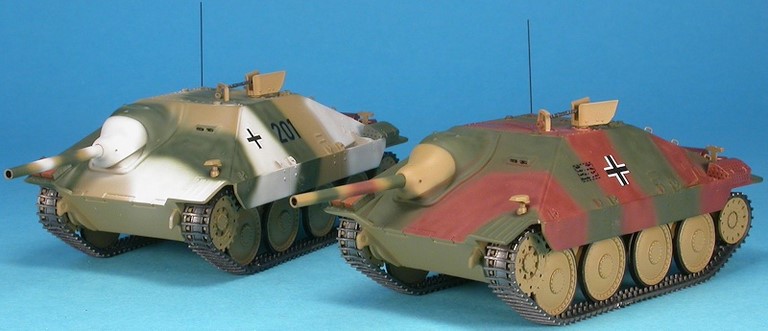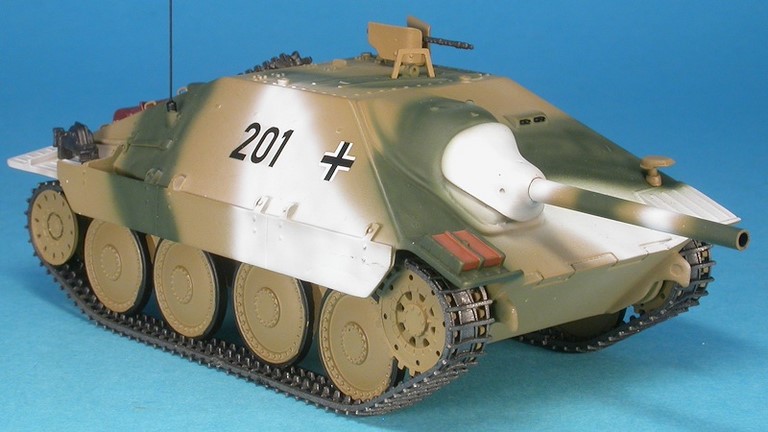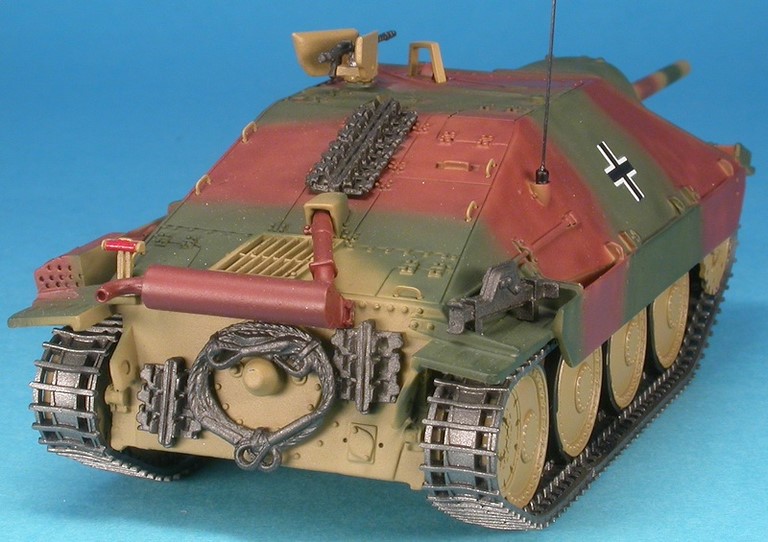Jagdpanzer 38(t) Hetzer
MF48573
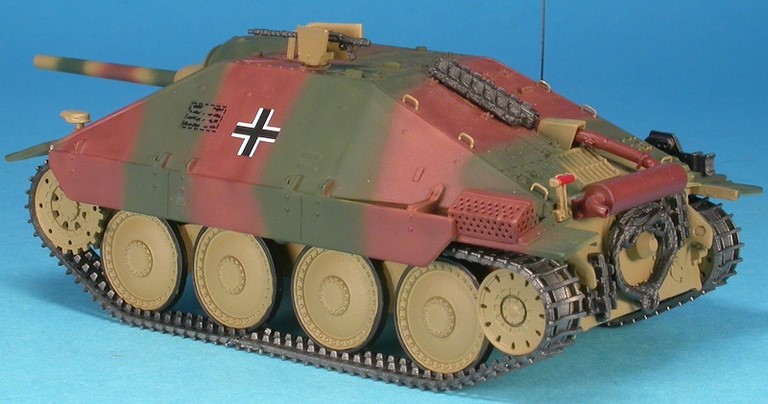
Miniature of 1/48th scale green camouflaged Jagdpanzer 38(t) Hetzer
The model features :
- Resin parts
- Metal photoetched board
- Rubber tracks
You can also contact us to have this model assembled and painted with the camouflage of your choice.
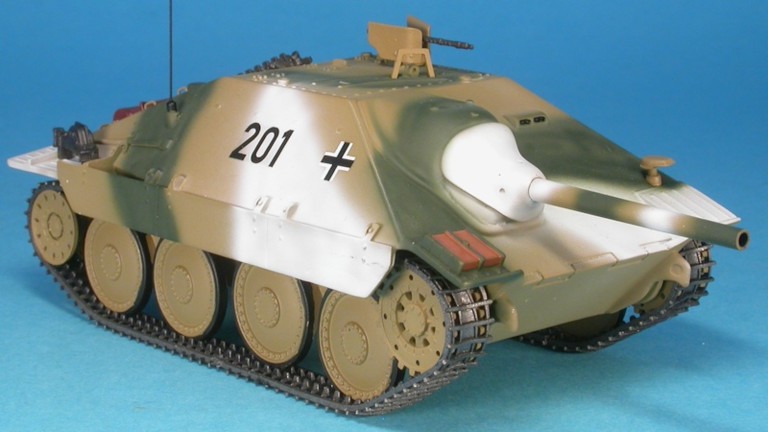
1:48 scale model of the Jagdpanzer 38(t) Hetzer hiver
The model features :
- Resin parts
- Metal photoetched board
- Metal axles to make the wheels mobile, if required
- Pre-cut windows
- Rubber tracks
You can also contact us to have this model assembled and painted with the camouflage of your choice.
History of the Jagdpanzer 38(t) Hetzer
In March 1943, Heinz Guderian suggested replacing all the old, light-armored, open-superstructure Panzerjägers that had served as an interim solution with a completely new breed of tank hunters, better protected by thicker armor and, above all, a fully armored structure more suited to the realities of combat. It was at this time that the new tank fighter was definitively christened the Jagdpanzer 38 (t) Hetzer (Stalker) and given the serial number Sd.Kfz.138/2.
A total of 2,584 units - a huge number given German capabilities - were produced in three series until the end of the war. The Hetzer's silhouette was low-slung, thanks to a superstructure with steeply sloping (welded) sides. Armor was 60 mm at the front, 8 mm on the roof and rear, and 20 mm on the sides. Short 5 mm armour skirts were also fitted to the sides. The Hetzer equipped the tank hunter units (Panzerjäger Abteilung/Kompanie) of infantry divisions, Panzergrenadiers and various independent units. Hetzers equipped all types of Wehrmacht and Waffen-SS units in a total of 10 divisions.
They were also deployed in a Luftwaffe division, two Kriegsmarine divisions and 3 RAD and ROA (Russian Heer volunteers) divisions. They would scour every battlefield on every front (from 1944 onwards).
